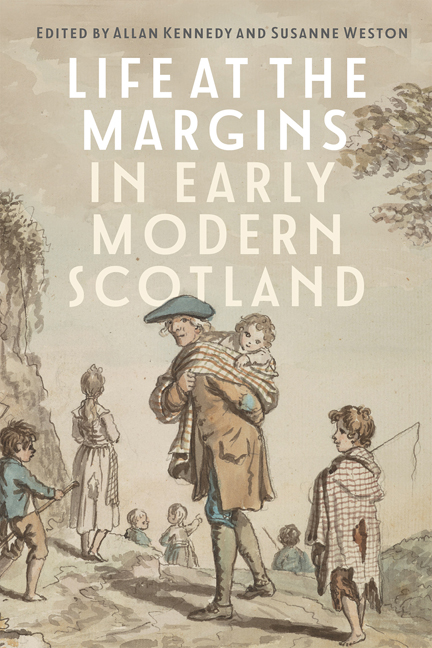11 - Seeking the Lord, Seeking a Husband: Navigating Marginality in the Diary of Rachel Brown (1736–8)
Published online by Cambridge University Press: 08 May 2024
Summary
Early modern religious institutions were undeniably patriarchal. The Scottish Kirk vested men with religious authority, and expected women to subjugate themselves before both God and their husbands. Visions of John Knox raging about monstrous regiments, or the notion that the witch hunts were primarily a mechanism by which the Kirk policed women's sexuality, have shaped popular conceptions of post-Reformation religion and gender. As Callum G. Brown explores, early waves of scholarship similarly envisaged post-Reformation Scotland as an ‘empire of patriarchy’ in which both theology and ecclesiastical structures perpetuated the ‘demonisation of women’. However, historiography since the 1980s has painted a more nuanced picture. Kirk sessions worked to protect women as well as punishing them, and many ministers – including Knox – had circles of female confidants. In a discussion of the role of women in Scottish divinity between 1590 and 1640, David Mullan highlights women's role in protests, and suggests that women ‘had a real impact on other women and on men through their spiritual counsel’. In her analysis of the Covenanting movement, Louise Yeoman similarly underlines how women participated both in prayer groups and in riots, with Presbyterianism promoting ‘a brand of female activism and assertion which is rarely seen in other seventeenth century contexts’. Against a backdrop of conflict, early Covenanters encouraged zealous devotion to the cause, and exalted godliness above all – a democratising approach, for men and women from across the social spectrum might be redeemed by God's grace. The relative stability of the early eighteenth century furnished fewer opportunities for women to take on the mantle of saintliness, but both sexes continued to debate and resist the status quo in prayer societies, as Alasdair Raffe has demonstrated. Thereafter, the evangelical revivals of the 1740s captivated a largely female audience with fresh promises of glorification. Ecclesiastical structures and teachings upheld gendered hierarchies, but religion nevertheless offered some degree of empowerment.
The difficulty of assessing whether religion was a liberating or constraining force is thrown into stark relief when we consider spiritual writing. Before the eighteenth century, Scotswomen's reading and writing almost exclusively focused on religious topics.8 The project of spiritual growth legitimised – indeed necessitated – the act of self-reflection. In his study of autobiographical writing by Scots born in the early eighteenth century or before, Mullan identifies some fifty works, of which sixteen were produced by women.
- Type
- Chapter
- Information
- Life at the Margins in Early Modern Scotland , pp. 179 - 193Publisher: Boydell & BrewerPrint publication year: 2024



